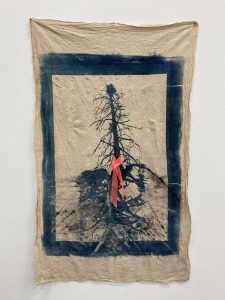“WE” A Magazine
Tianwen Lin
Material: Paper Printing
Tools:Photoshop,Indesign,Traditional Paper Collage
Number of pages: 23
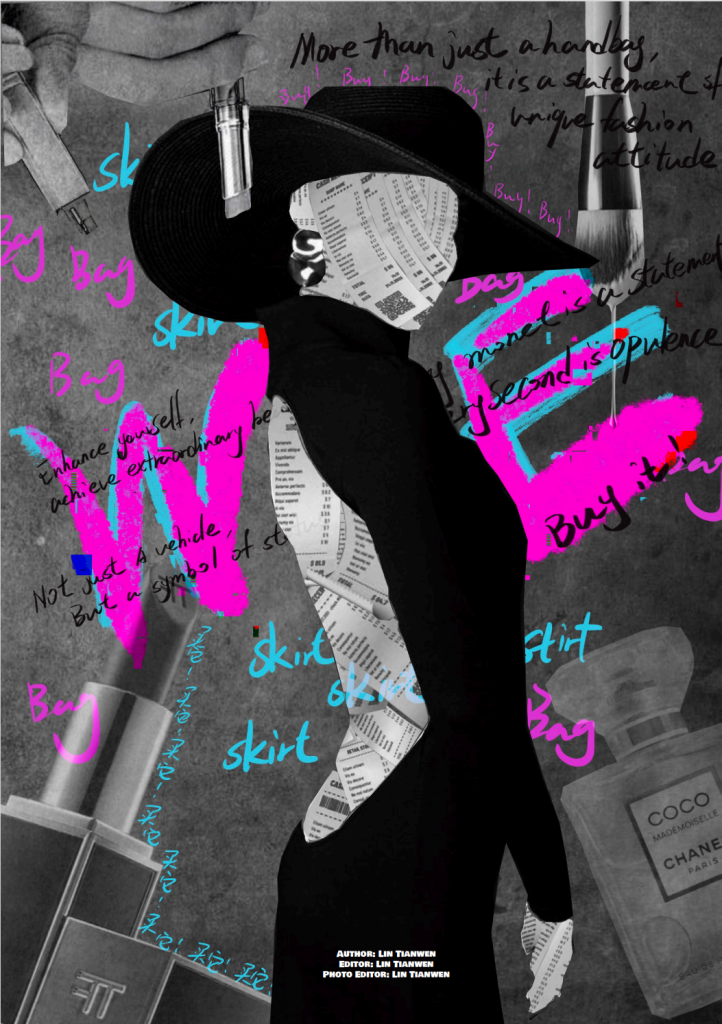
Artist Statement
In this era dominated by superficial consumerism, my magazine aims to provoke deep reflection on issues such as overconsumption and appearance anxiety. By combining collage art, text, and images, I explore the multidimensional impacts of these widespread problems, encouraging readers to critically examine social norms and avoid blindly following trends.
This magazine is not just reading material; it is also a platform for advocating a more enlightened, conscious, and inclusive world. I look forward to establishing a profound connection with readers through this project, inspiring collective introspection and action.
——Tianwen Lin
Previews
Luxury brands spend a lot of money on marketing every year to create an image of being fashionable and glamorous. They use celebrities to make people think that wearing their clothes or using their products will make them look as good as those celebrities. They use clever marketing and catchy slogans to make people dream of a perfect life, distracting them from their real problems and squeezing them for money and ideas.
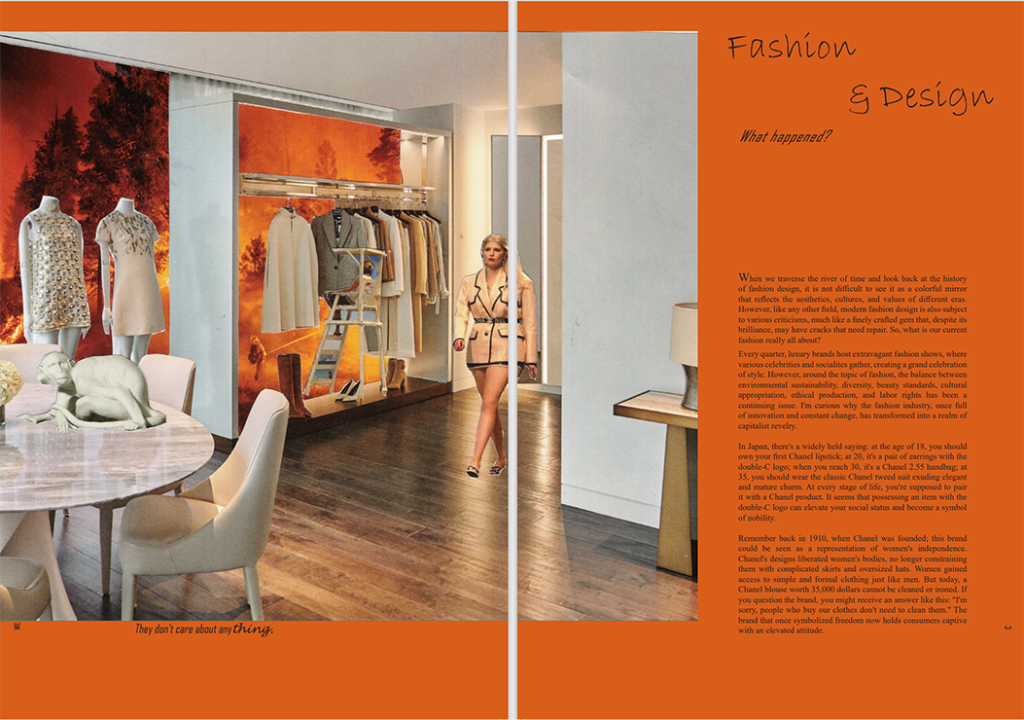
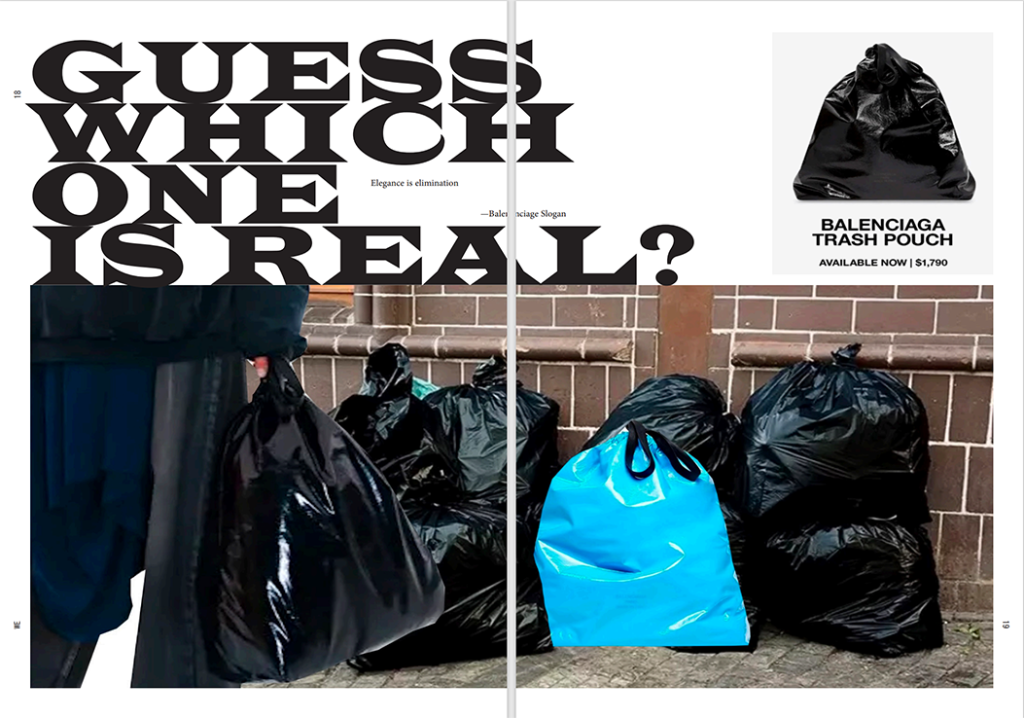
Some people think Balenciaga’s design cleverly mocks the fashion industry and challenges our traditional views on luxury goods. By turning a trash bag into an item priced at $1790, it criticizes modern consumer culture and how people blindly chase brand labels.
Isn’t this also a form of over-marketing? Luxury brands often use so-called satire as a tactic to excessively market their products. By claiming to critique the luxury goods and consumer culture, they position themselves on a moral high ground, aiming to boost their brand awareness and influence.
Modern consumer culture often values brands more than design and comfort. As brands become more commercialized, many stray from their original essence and purpose. Away from the store displays, lighting, and atmosphere, these so-called “designer clothes” don’t shine the same way if you were to display them in a more ordinary setting, like a backyard.

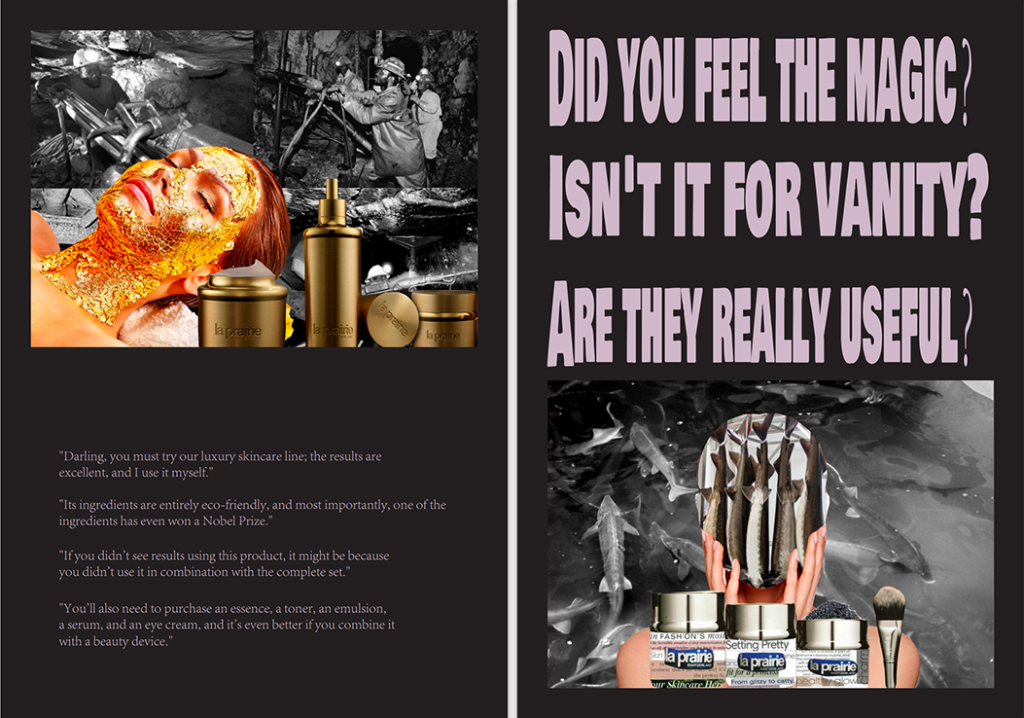
Gold and caviar sound expensive, but do they really work as advertised in skincare products like face masks? Gold symbolizes luxury, but beyond its anti-inflammatory properties, it doesn’t offer much additional benefit for your skin. Using a gold face mask might only satisfy the feeling of luxury, rather than providing substantial skincare benefits.
Modern medicine hasn’t fully proven that caviar can be effectively absorbed by the skin in mask form. While caviar is known for being pricey and nutritious, this kind of marketing taps into consumer psychology, catering to the desire for products perceived as high-quality by society, regardless of their actual effectiveness.
Full contents:
https://drive.google.com/file/d/1E-2nEW4mWoL-r9nNxDoDUyn5gKyJ2VU9/view?usp=sharing
Place to Set
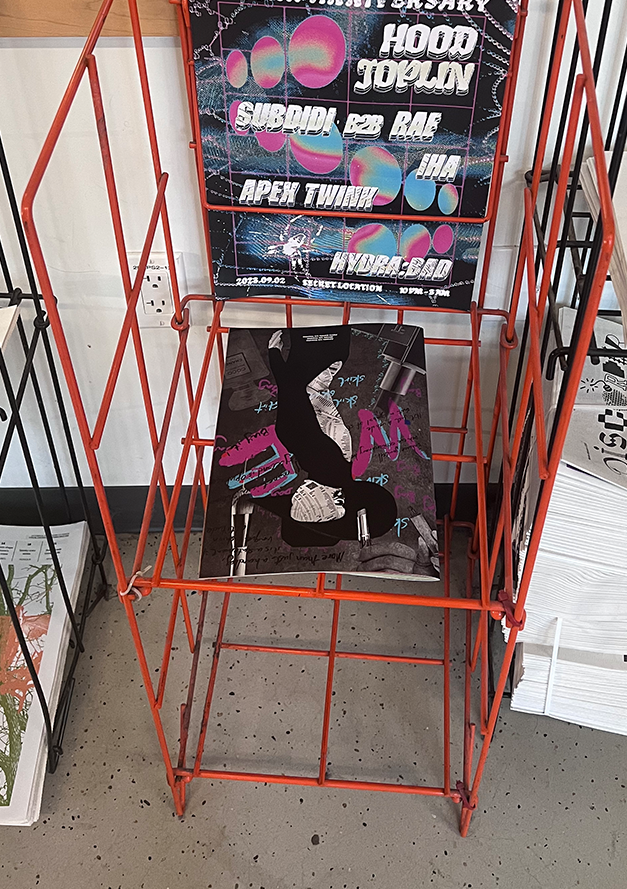
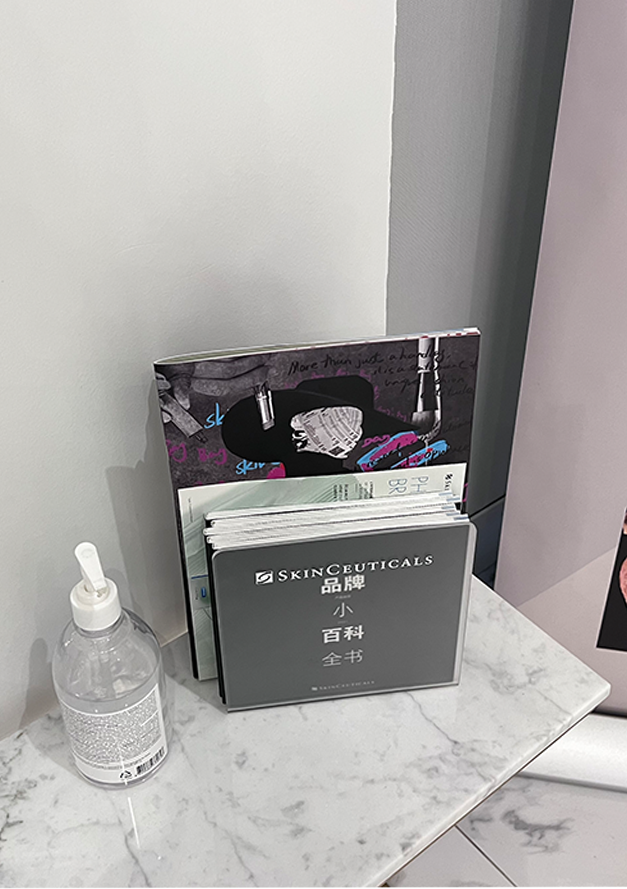
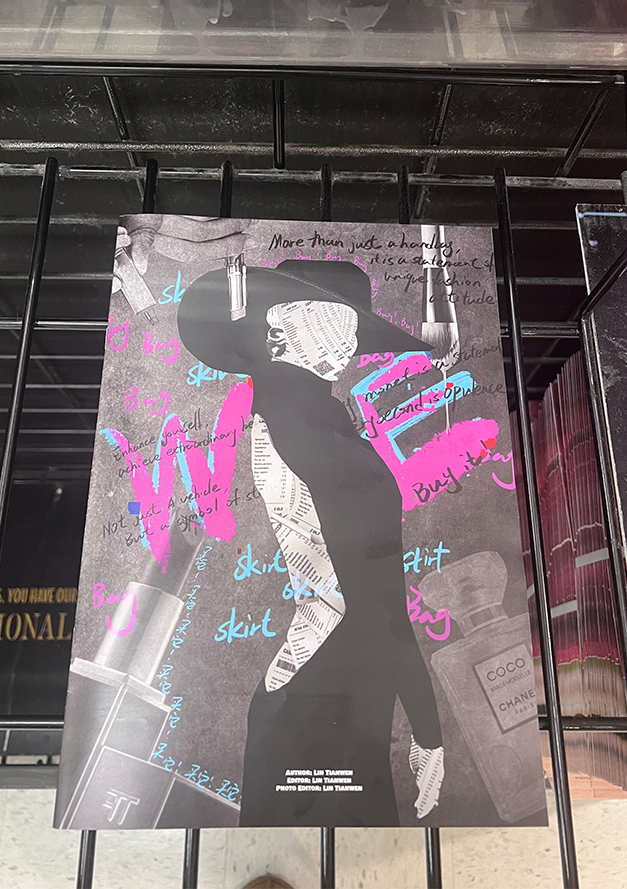
Other Works




